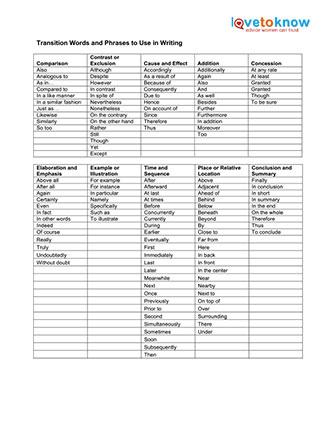
If you like the idea of working in the hospitality industry, chances are you'll spend some time working in hotels and/or resorts. If you enjoy dealing with people and like the idea of being part of the tourism industry, working in one of the many types of jobs in hotels and/or resorts may be a good career path for you.
Pros and Cons of Working in Hotels/Resorts
As with any field, there are positives and negatives associated with jobs in hotels/resorts. What one person considers a drawback, someone else might view as an advantage.
Benefits of Working in a Hotel or Resort
Some of the positive aspects of working in a hotel or resort include:
- Hotels and resorts must be staffed 24 hours per day, seven days per week. This means that there are shift opportunities available to suit every scheduling need. This can be particularly beneficial for students and people working second jobs.
- Many jobs at hotels and resorts don't require specialized training, so it's often possible for people without much experience or formal education to secure entry-level positions.
- Hotels and resorts are known for promoting from within. Entry-level workers who excel in their jobs are often considered for promotions or opportunities to gain experience in other positions on the property.
- There are many kinds of hotel/resort properties, so it's easy to tailor your job search to the type of environment (budget, luxury, business, family-friendly, tourist-focused, etc.) that most appeals to you.
- Large hotel chains typically have properties in many locations around the world, a fact that often makes it possible for hotel employees to transfer to different locations throughout their careers.
Disadvantages of Working in a Hotel or Resort
As with any profession, there are some disadvantages to working in the hotel or resort industry.
- Jobs at resorts in tourist areas are very seasonal. Many resorts add a lot of workers during their peak season(s), but have to reduce the size of their staff during the off-season.
- Hotel staffing is dependent upon occupancy rate, so factors other than tourist season can impact staff size. During a pandemic, for example, hotels may be reduced to very minimal staffing, or even be forced to close.
- The easiest jobs to get in hotels and resorts often require employees to work late night or overnight shifts. These jobs also tend to be the lowest-paying positions at the property.
- Hotel guests can have very exacting standards and be quite demanding, especially at high-end hotels and resorts, a factor that some people may find to be particularly stressful.
- Many hotels hire primarily part-time workers, which means that a lot of hotel/resort employees may not be eligible to participate in employer-provided health insurance or other benefits.

Types of Jobs in Hotels/Resorts
Hotels and resorts have many types of employees on staff. Some are positions that can be learned on the job, while others may require specialized training or a degree in hospitality management or another field related to tourism. That means there are opportunities for people with many skills sets. Examples of the different types of positions within hotels and resorts include:
- Hotel management - Hotels and resorts typically have a general manager (GM), as well as other supervisors who oversee their property's various departments. Large properties may have several assistant managers who report directly to the GM.
- Front desk - Hotels and resorts usually have one or two front desk managers and multiple front desk workers. They are responsible for checking guests in and out, answering guest questions, taking phone calls, and making reservations.
- Concierge - Upscale hotels and resorts typically have a concierge on duty most of the time. This person helps guests with special requests, such as booking dinner reservations or securing tickets to nearby attractions or events.
- Parking attendants - Hotels that offer valet parking hire attendants to park and/or retrieve guests' vehicles. Some also employ parking attendants to monitor parking garage usage and verify that fees are properly charged.
- Housekeeping - Hotels and resorts generally have several housekeeping employees. They are responsible for cleaning guest rooms and the overall property, as well as ensuring that towels, toiletries, coffee, and other supplies are stocked.
- Maintenance - Hotels typically have a few maintenance workers on staff who are responsible for doing basic maintenance and repair work, such as changing light bulbs and air filters, treating the pool and hot tub, and general troubleshooting.
- Groundskeeping - Large properties often have groundskeeping workers who are responsible for maintaining the lawn, flower beds, and other public areas of the property, as well as keeping swimming pools and other recreation areas clean.
- Cooks/chefs - Hotels and resorts that have restaurants have cooks and/or other food prep workers on staff. Properties that offer fine dining often employ highly trained professional chefs and sous chefs as well.
- Foodservice staff - Properties that have on-site restaurants also employ foodservice employees such as hosts, servers, and bussers. Those with bar areas also employ bartenders. High-end properties may have sommeliers on staff.
- Event staff - Hotels and resorts that rent event space also employ event managers and banquet workers who are responsible for booking, setting up, and staffing events like weddings, reunions, parties, trade shows, and classes.
- Amenities workers - Some hotels and resorts offer special amenities, such as on-site spas, golf courses, water parks, beach access, and more. Many kinds of employees are required to staff various positions based on a property's amenities.
- Back office - Hotels and resorts also have back-office workers, such as human resource professionals, accountants, purchasing agents, sales professionals, marketing professionals, information technology workers, and more.
These are just a few examples of the many types of jobs a hotel or resort might have. Small properties may have only a few employees, while expansive resorts or large hotels can have thousands of employees.

Compensation in Hotels/Resorts
You may be wondering if hotel jobs pay well. Some do and some don't. In hotels and resorts, pay varies widely by position and location.
- According to the Bureau of Labor Statistics (BLS), the median annual earnings of U.S. lodging managers is more than $56,000 per year as of 2020, which is approximately $27.25 per hour.
- Pay tends to be significantly less for other types of positions. BLS data reveals average earnings of less than $17 per hour for non-supervisory workers. It's not unusual for entry-level hotel jobs to pay minimum wage.
- Many hotel/resort workers in the U.S. rely heavily on tips to earn a living wage, especially restaurant servers and amenities workers like spa attendants. In many other countries, tipping plays less of a role in compensation for hospitality workers.
- Pay at hotels and resorts in other countries varies based on local wage and hour laws or regulations, and prevailing wage practices particular to that area.
Is Hospitality a Good Career Field?
Working in hotels/resorts is just one of many hospitality career paths. People who stay in the hotel business often seek management positions or back-office jobs, as those tend to pay the most and have the best hours. Many also choose to stay in customer-facing roles for the long term. Others leverage their experience in the hotels/resorts to move on to other kinds of opportunities within the hospitality industry. Hotel/resort experience can help you prepare to become a travel agent, bed and breakfast owner, cruise ship worker, tour guide or operator, restaurant manager, property manager, and more. The experience you gain in this industry will be valuable regardless of whether you stay in hospitality or move to another field.







